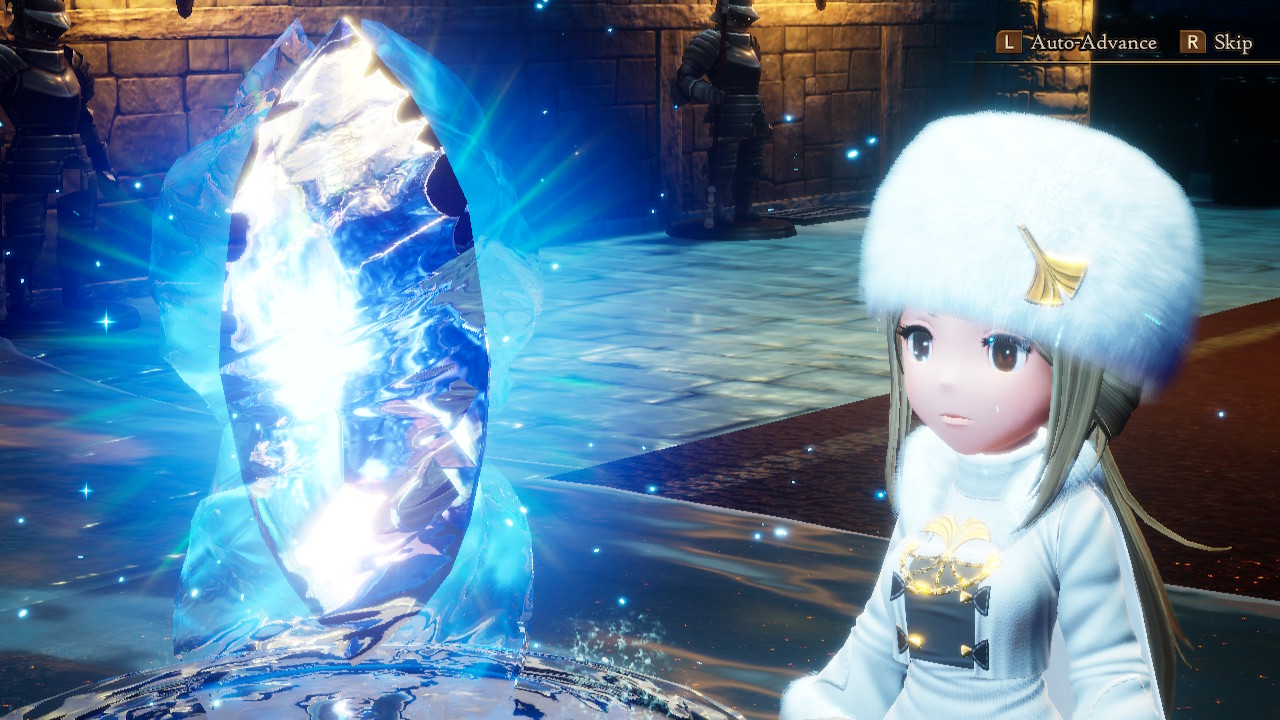GamesRadar+ Verdict
Bravely Default 2 is one of the best games to point to when people ask what makes JRPGs fun.
Pros
- +
Exciting take on turn-based combat
- +
Engrossing job system
- +
Incredible character designs and music
Cons
- -
Enemies repeat a little too much
Why you can trust GamesRadar+
I would've had this Bravely Default 2 review ready sooner if the game hadn't gotten a lot longer – and somehow better – out of nowhere around 50 hours in. Maybe that's on me; bonus chapters are practically a Bravely tradition at this point. Not that I'm complaining or anything, because now that I have finally worked through this mammoth of a JRPG, I'm more than ready to put it on the same shelf as Persona 5 Royal and Dragon Quest 11 S as one of the best games in its genre. Bravely Default 2 is absolutely sublime, and it's an early frontrunner for game of the year.
The heroes' journey
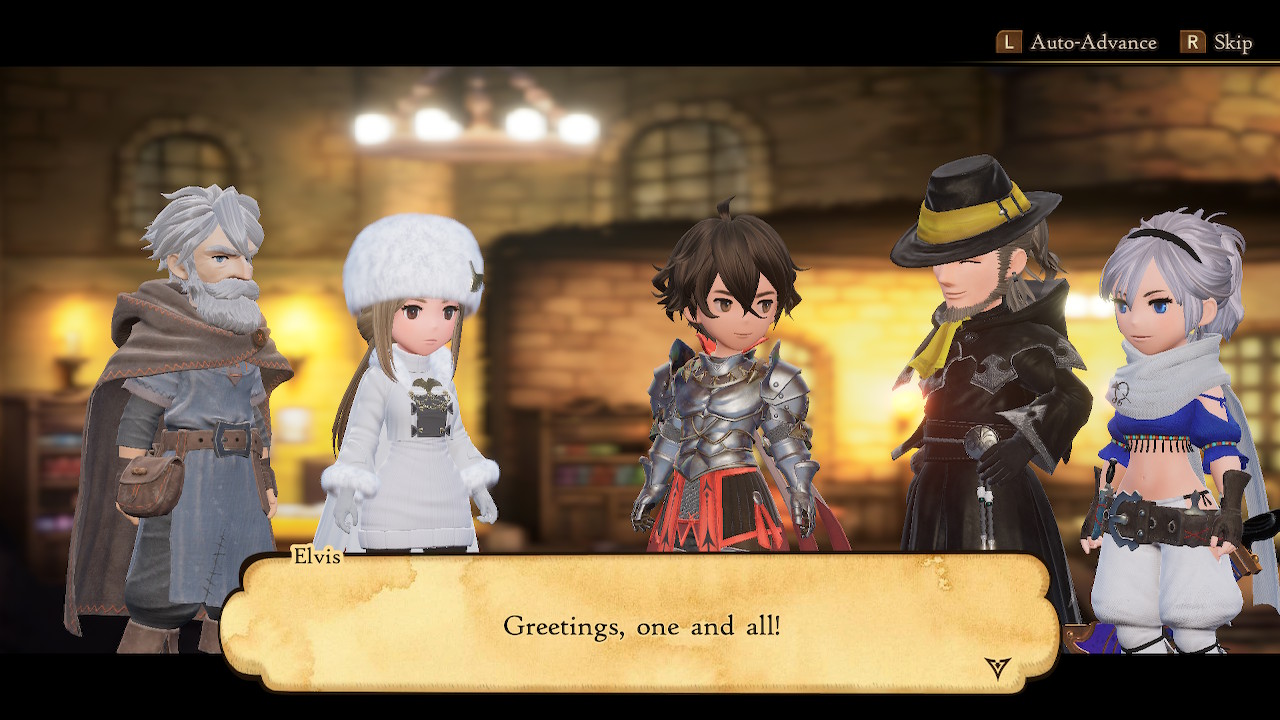
In true Bravely fashion, we open with four unlikely heroes brought together by equally unlikely circumstances that compel them to gather four elemental crystals and save the world. It's a classical, if well-tread setup, but Bravely Default 2 delivers it with a sense of winking self-awareness that makes all the difference. This is not a game about heroes of light being awesome. It's a startlingly grim story about corruption, obsession, and sacrifice, and it's elevated by the diversity of societies within it and the strength of its main cast.
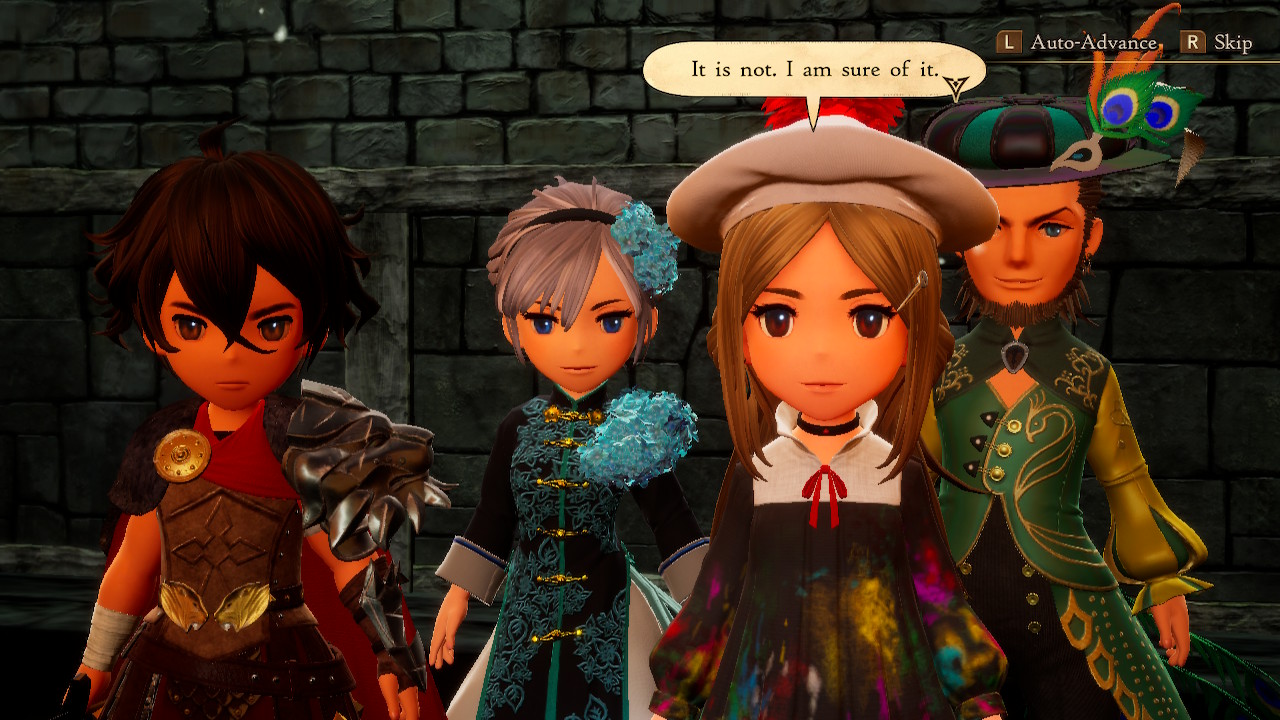
Release date: February 26, 2021
Platforms: Nintendo Switch
Developer: Team Asano / Claytechworks
Publisher: Square Enix / Nintendo
The core party is introduced very quickly: Seth (or whatever you name him), a former sailor who makes a fresh start after his past is severed; Gloria, the princess and sole survivor of the lost kingdom of Musa; and finally Elvis and Adelle, respectively a wizard unraveling his late mentor's final work and the mercenary accompanying him. There are essentially four main characters here, and they're all great in their own ways. Gloria is steadfast and honest and keeps the party moving forward. Elvis is a bit of a class clown, but he's loyal to a fault and his jokes hide a quiet intelligence. Adelle is quick to act and just as quick to speak her mind, and she delivers some of the most withering and memorable lines in the game. And by bouncing off the three, Seth matures into a refreshingly emotional foil with a valuable perspective.
If it sounds like I'm attached to these characters, it's because I am, and not just because I've spent nearly every waking hour with them for the past week and change. From their designs to their demeanor to the game's more-hits-than-misses voice acting, Bravely Default 2 does a great job of making its heroes feel like regular people – people who had their own goals and problems long before they got wrapped up in something bigger than them. They struggle with the enormity of their newfound responsibility, but they embrace it and lean on each other for support and reassurance. They're fast friends but couldn't be more different, and the dynamics between them only get more interesting as more of the world around them comes into focus.
Globetrotters
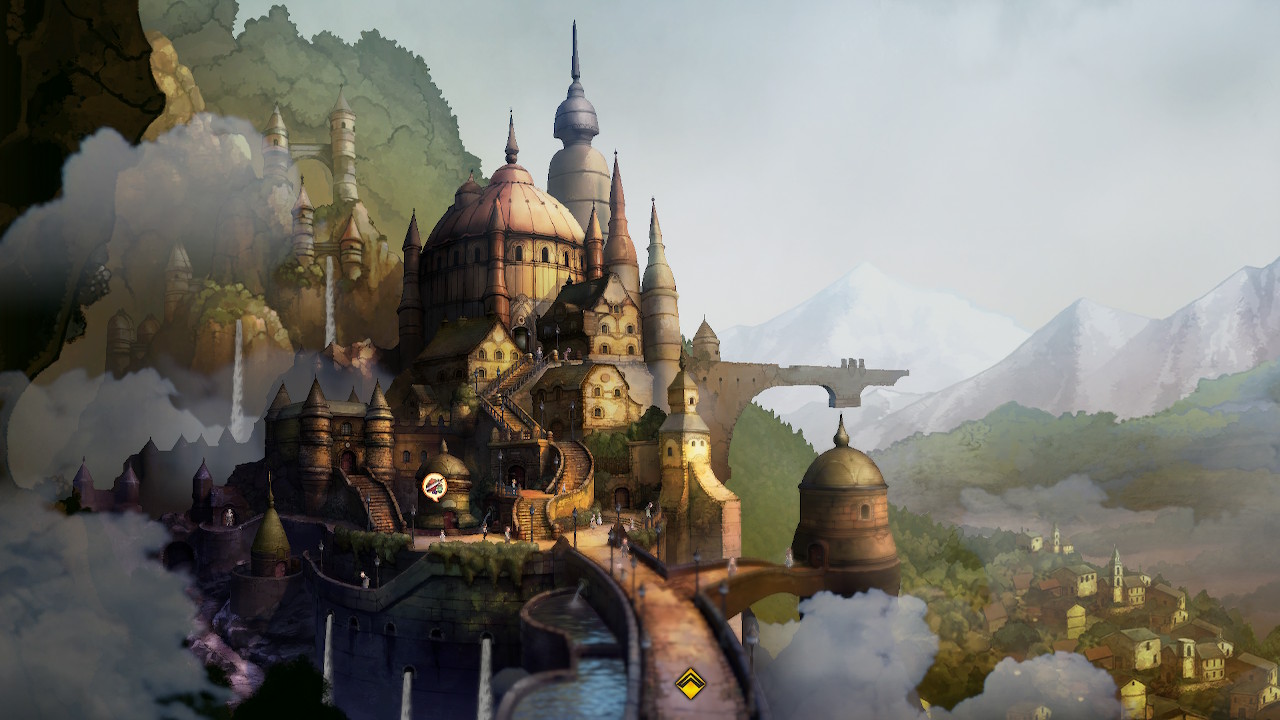
Much like the first game – arguably too much like the first game at times, with some broad strokes lifted almost verbatim – Bravely Default 2 is a story told through kingdoms. You start in seaside Halyconia then move to the arid temples of Savalon and so on to Wiswald and beyond, each illustrated cityscape more gorgeous than the last. Your primary goal is to snag a crystal in the four main regions, but of course, each one has unique troubles that get in the way, to say nothing of the shadowy figures pulling strings behind the scenes.
Each kingdom is the setting for a short and often tragic story, and these tackle everything from murderous cults to royal infighting to irreparable loss. The mood is lightened by yet more likable characters, but this really is a dour game a lot of the time. Bad things happen to good people, and you don't always get there in time. That said, the fundamental message is a hopeful one, and with every crystal collected the immediate effects of your actions become clearer. This reinforces the importance of your quest while giving the save-the-world setup some much-needed wrinkles, and I felt properly motivated to bring down new villains every step of the way.
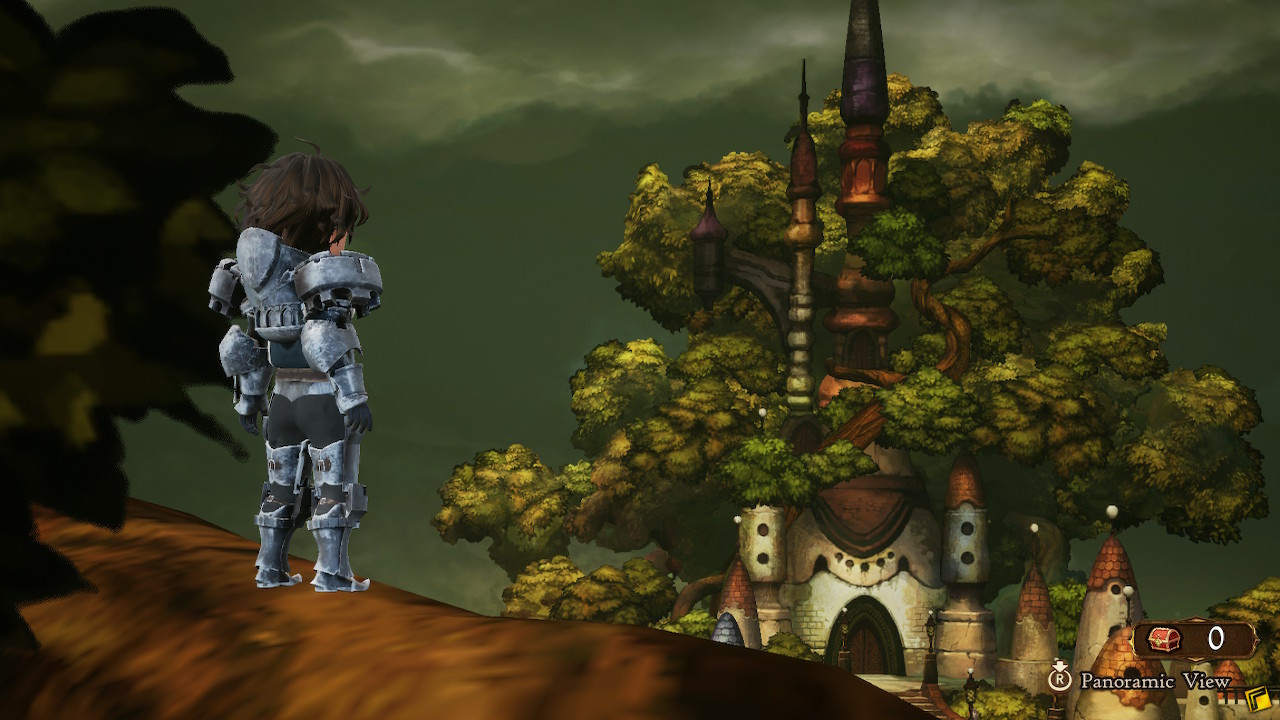
Every region is also a treat in its own right, ripe with new treasures, side quests, and unlockable jobs. Exploring pays off in Bravely Default 2, and while the isometric camera is sometimes finicky, it's mighty fun to just poke around and take in the sights. There's a board game-y charm to the world that suits its miniature, almost chibi-esque characters, but there are some serious lighting and water tech under the hood.
I have fond memories of getting my teeth kicked in after stumbling upon a rare monster that I was way too underleveled to fight, only to return 30 hours later and absolutely atomize it. I found myself surprisingly engaged with side quests, too, since they balance the usual back-and-forth objectives with the kind of cutscenes many games would reserve for the main story. My favorite quest involves a giant pig-like orc looking for the only human to ever show him kindness. At one point I had to get him some schnitzel so he could cut down a tree and I could continue the main plot. This game rules.
Defaulting bravely
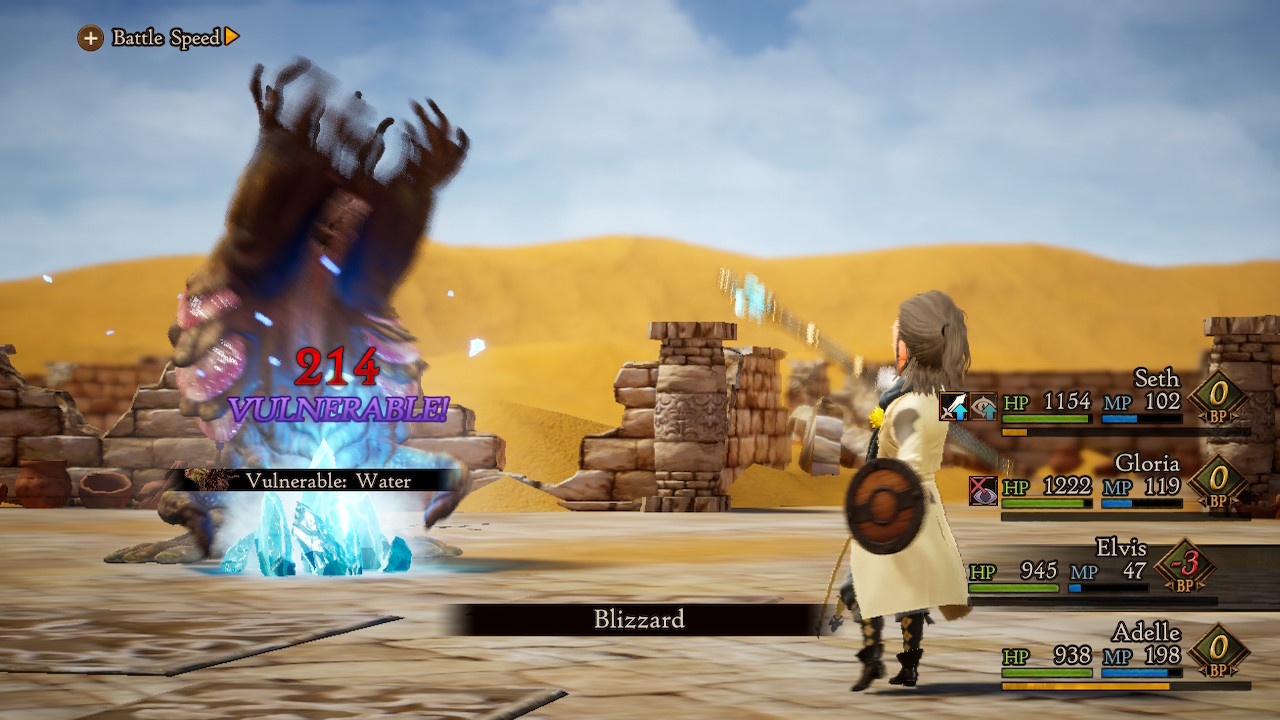
Vanquishing villains and completing some quests will unlock jobs through the game's returning and amusingly literal Asterisk system. Asterisks are just straight-up magic gems that turn you into a master of some craft or fighting style, which is a pretty cool way to weave such an iconic pillar of JRPGs into the world itself. There are around two dozen Asterisks in total, each with over a dozen active and passive skills. You can only use the active skills of your main and sub-jobs, but you can mix and match up to five passive abilities from any class you've leveled. On top of that, everyone can use every job, plus they all get their own spiffy outfits. In other words, dual-classing is so last week. I don't get out of bed for anything less than a six-job build.
Leveling different jobs and experimenting with weird combinations is always fun, and Frankenstein-ing the ideal loadout together is immensely satisfying. I swear, combining some of the passives in this game feels illegal. By the end of the game, my Adelle build could solo clear almost every non-boss encounter in a single turn while gaining mana. You can produce items from thin air, slap enemies with so many debuffs and ailments that they can barely move, and make the damage cap look more like a minimum. I spent hours gleefully smiling at menus while building dungeoneering and boss-specific builds for every member of my party, and every new Asterisk added something meaningful and exciting to my skill set. Lord knows I needed every tool I could get my hands on. I played through on hard mode, and the difficulty felt just right – never so brutal that I needed to grind, but challenging enough to encourage me to maximize my characters.
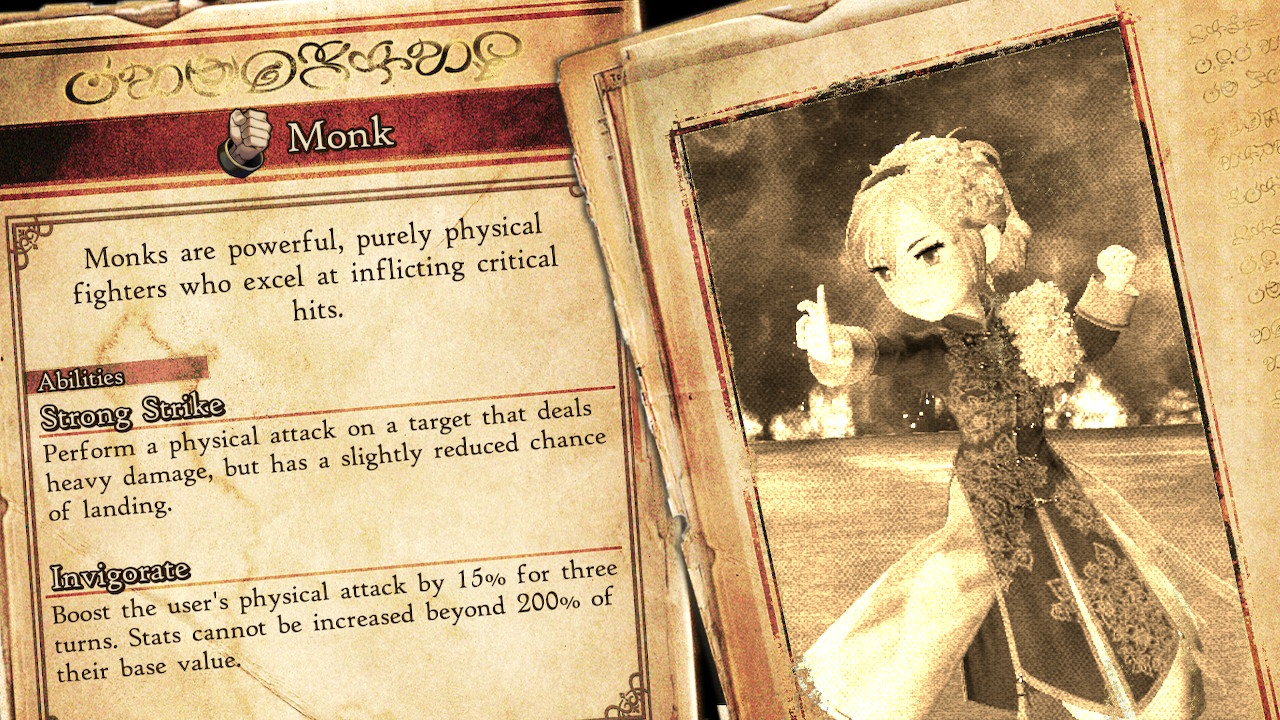
The job system in Bravely Default 2 is a treasure trove of theorycrafting, and a late-game revelation turns it into a near-bottomless well of possibilities. That alone could carry the game, but it also has one of the best turn-based combat systems of all time. The titular brave and default commands are back, allowing you to store battle points defensively or burn through a couple to perform multiple actions at once. This fits the cyclical nature of turn-based fights to a tee. Against bosses, I'd store up BP to minimize incoming damage while preparing for a huge swing turn or, just as often, an emergency heal. Against normal enemies, I'd test my limits by burning into negative BP in order to take care of problem targets or end fights quickly, albeit with the huge risk of being unable to act again for a few turns.
I said this when I played the original Bravely Default, but this still feels like the kind of thing that turn-based games were always leading up to. There's nothing quite like bravely defaulting, and beyond exhilarating, it's a meaningful evolution of one of gaming's most storied mechanics. Bravely Default 2 improves on this further by adding clearer turn timers and a medley of counterattacks that make the balance of offense and defense even dicier. And we haven't even gotten to all the skills and jobs that can generate BP for your team and totally flip the table on how you approach some fights.
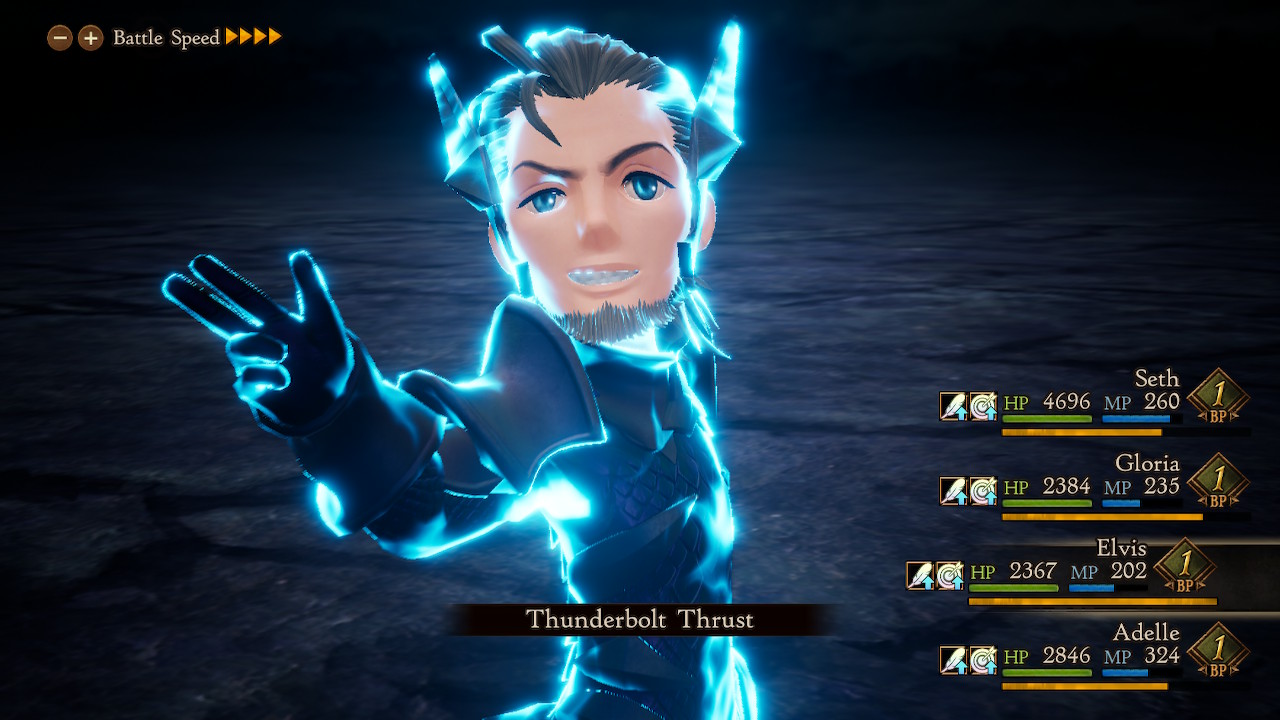
It's hard to take issue with anything in Bravely Default 2, and there are so many tiny details that take it above and beyond. Fast travel is super handy and available from the start. Dungeons gain entrance and exit portals once you clear them to make spot-checking or side questing easier. Intuitive menus make itemization quick and easy. You can manually trigger fights by whacking enemies with a sword in the overworld. Special items let you chain encounters to power-level new jobs. It's got an AFK element that generates useful items while your Switch is in sleep mode. There's a whole-ass card game tucked away in a casino with some really cool prizes. And let's not forget the schnitzel thing.
Bravely Default 2 is just top-to-bottom quintessential JRPG fun. It's nostalgic but innovative, complex yet approachable, and overflowing with character. I'm thrilled to see the Bravely series continue, and I hope to god it doesn't take another six years for Bravely Default 3.
More info
| Genre | JRPG |

Austin has been a game journalist for 12 years, having freelanced for the likes of PC Gamer, Eurogamer, IGN, Sports Illustrated, and more while finishing his journalism degree. He's been with GamesRadar+ since 2019. They've yet to realize his position is a cover for his career-spanning Destiny column, and he's kept the ruse going with a lot of news and the occasional feature, all while playing as many roguelikes as possible.

